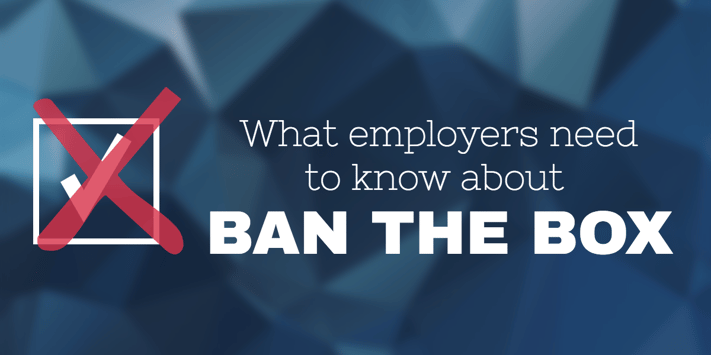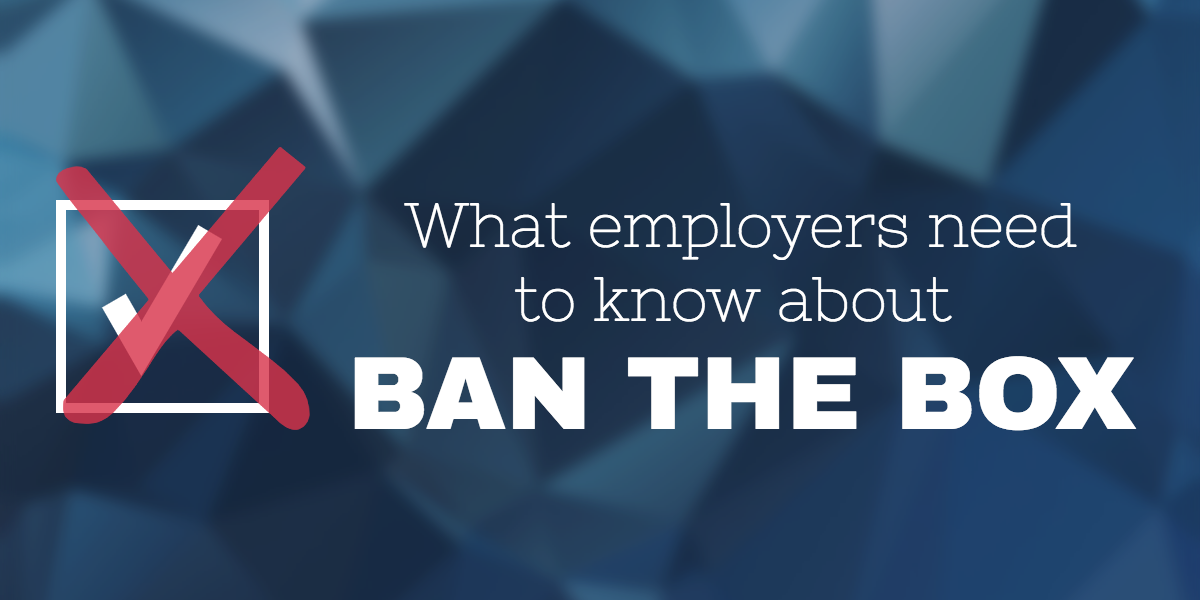
The Ban the Box movement is a grassroots effort aimed at changing hiring practices that make it difficult for previously-convicted persons to get jobs after time in prison. The movement’s stated purpose is to encourage employers to hire the most qualified candidate for a job, regardless of whether or not they have prior convictions.
One common practice that makes it difficult for many people with conviction histories to gain employment is some variation of a check-box question asking the applicant to indicate whether or not they’ve ever been convicted of a felony. This is where the term “ban the box” originates; proponents of the movement say that this question signals an employer’s intent to disqualify applicants based on criminal records.
Supporters of fair chance laws say that by removing the check boxes that indicate conviction history from job applications, employers can avoid discouraging qualified applicants from applying. They can also prevent themselves from making assumptions about a candidate’s ability to perform a job successfully based on this single factor. Since an estimated 1 in 4 American adults has a conviction history that can make it more difficult for them to get a job, this is hardly a niche issue.
According to the Ban the Box campaign's website, the initial stages of the movement have focused on encouraging government agencies to change their hiring practices, with the eventual goal of all employers following suit. Since it started in 2004, the movement has gained significant traction; 45 cities and counties and seven states have removed questions about arrest and conviction records from applications for government jobs. Some private companies (particularly those with multi-state workforces) have started to voluntarily adopt applicant screening practices that don’t include questions about arrest or conviction records.
While proponents of the movement are encouraged by these developments, some common concerns have arisen among employers and hiring managers in areas where the movement has not yet been adopted. Here are a few common misconceptions about Ban the Box, and the facts about what the movement means for private companies nationwide.
Myth 1: Ban the Box rules are the same everywhere.
False. There is relatively little uniformity among the city, county, and state governments that have enacted legislation on this issue. For example, in Connecticut, the legislation only applies to jobs in the state government, whereas Massachusetts requires compliance from both state agencies and private employers.
Not only does the scope vary based on the location, so do the guidelines; in Maryland, a criminal background check can be made once a job candidate has been given an interview opportunity, but in Colorado, the applicant has to be named a finalist before an employer can get a background check.
For employers with presence in multiple states, compliance can be even more confusing. A company with a headquarters in a location without laws on this issue is not exempt company-wide from fair chance hiring practices. Instead, each location is responsible for complying with local laws, even if that means a break with the company’s existing hiring practices.
This means that— unlike other regulations that have compliance guidelines spelled out by the federal government— on this issue, employers and HR professionals need to know about laws at the state, county, and city level to stay compliant.
Myth 2: The surest way to stay compliant is to avoid performing background checks.
False. While some places with fair chance laws do have stipulations about when and how background checks can be used in the applicant screening process, avoiding background checks altogether (especially if their use is not prohibited) may be a bad idea. Employers often uncover valuable information about job candidates from background checks that may not have been presented in applications or job interviews.
In fact, according to Global HR Research, while only about 10 percent of background checks present criminal history, a full 44 percent show driving-related issues. Additionally, nearly a quarter of background checks performed (23 percent) reveal that an applicant has falsified their employment history. This is information employers should know before making a job offer, so completely removing background checks from the hiring process is likely overkill. The best way to maintain compliance on this issue is to know what’s required by your city, county, and state law, and to work within those guidelines.
Myth 3: Ban the box laws force employers into hiring people they wouldn’t otherwise hire.
False. In places that have adopted fair chance laws, employers are still allowed to perform criminal background checks at some point in the hiring process. In some cases, this can happen after an interview, and in some cases, a conditional offer is required first. Regardless, should the background check uncover any conviction that is an absolute dealbreaker for the employer, they’re not required to hire the job candidate.
The goal behind banning the box is not to force employers’ hands into hiring people they wouldn’t want to have in their organization; it’s to encourage them to keep an open mind about job applicants instead of reducing them to a single fact from their past.
If an employer has been interested enough in a job candidate’s skills and qualifications to have multiple interviews, and the candidate seems like a good fit for the role, learning about a criminal record may not preclude a job offer. Employers who exclude job applicants (or signal their intent to do so) based on one single factor could be missing out on capable, productive employees, all based on a past event for which the employer has no context or explanation. This fact is one reason many employers have voluntarily chosen to remove questions about conviction history from their initial applications, even if it’s not explicitly required of them by law.
On this issue, as with all HR best practices, it’s wise for HR professionals and company leaders to stay up to speed on current best practices as well as federal, state, and local regulations. Subscribe to our blog to get updates on this and other HR topics, and be sure to check out our HR compliance tracker.
